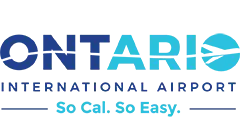
Student-Athletes Talk Mental Health
October 05, 2017 | Sport Psychology, USC Ripsit Blog
On Thursday morning, eight Trojans got the chance to chat with Dr. Brian Hainline, the chief medical officer of the NCAA, about a number of physical and mental health issues facing student-athletes.
Hainline, a former NCAA athlete himself, explained that the NCAA's main focus at the moment is the mental health of its student-athletes. He cited studies showing that most student-athletes are sleep deprived, and that sleep deprivation is correlated with an increase in suicidal thoughts and eating disorders.
Hainline also said the NCAA is focused on concussions, cardiac health, drug and alcohol abuse and sexual and personal violence among student-athletes.
USC's eight student-athletes, who represented sports such as men's tennis, women's indoor and beach volleyball, men's volleyball, women's swimming and more, all agreed that USC's resources for both physical and mental health are impressive. They explained that they have unlimited access to sport psychologists, who are able to help in a number of ways, like dealing with coaching changes, rehabilitating injuries, family issues and more.
Hainline was happy to hear that USC's student-athletes had ample access to physical and mental health resources, and stressed the importance of bringing all other NCAA institutions up to that standard. He also explained that the next frontier is making sure that NCAA coaches are trained to deal with mental health issues, so that student-athletes can discuss them directly with their coaches in addition to meeting with sport psychologists.
Hainline spent the rest of the day learning more about how USC operates, meeting with President Nikias, athletic director Lynn Swann, head football coach Clay Helton, USC's sport psychology team, USC's athletic medicine staff and more.
Hainline, a former NCAA athlete himself, explained that the NCAA's main focus at the moment is the mental health of its student-athletes. He cited studies showing that most student-athletes are sleep deprived, and that sleep deprivation is correlated with an increase in suicidal thoughts and eating disorders.
Hainline also said the NCAA is focused on concussions, cardiac health, drug and alcohol abuse and sexual and personal violence among student-athletes.
USC's eight student-athletes, who represented sports such as men's tennis, women's indoor and beach volleyball, men's volleyball, women's swimming and more, all agreed that USC's resources for both physical and mental health are impressive. They explained that they have unlimited access to sport psychologists, who are able to help in a number of ways, like dealing with coaching changes, rehabilitating injuries, family issues and more.
Hainline was happy to hear that USC's student-athletes had ample access to physical and mental health resources, and stressed the importance of bringing all other NCAA institutions up to that standard. He also explained that the next frontier is making sure that NCAA coaches are trained to deal with mental health issues, so that student-athletes can discuss them directly with their coaches in addition to meeting with sport psychologists.
Hainline spent the rest of the day learning more about how USC operates, meeting with President Nikias, athletic director Lynn Swann, head football coach Clay Helton, USC's sport psychology team, USC's athletic medicine staff and more.
Women's Volleyball - USC 1, Indiana 3
Friday, October 03
USC HC Lincoln Riley | Thursday of Bye Week 1
Thursday, October 02
On the Rise: How USC WVB Is Off to Its Best Start Since 2015 | SC Features
Thursday, October 02
USC Safety Bishop Fitzgerald | Wednesday of Bye Week
Wednesday, October 01













